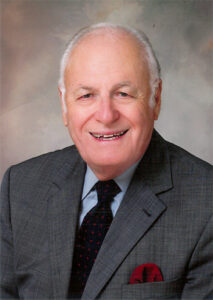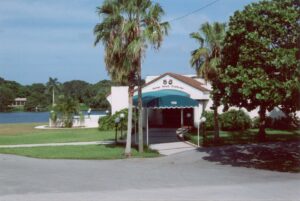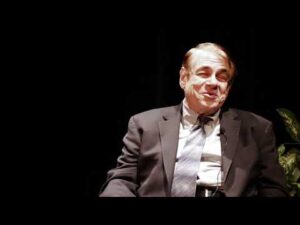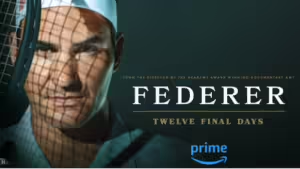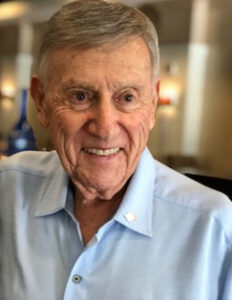
1909 is dedicated to growing Palm Beach County’s entrepreneurial ecosystem.
We’ve had our eyes on 1909, a co-working space, business incubator and accelerator in West Palm Beach, for a long time now.
Named after the year Palm Beach County was founded, 1909 is a creative community that nurtures entrepreneurs helping them turn their ideas into viable businesses.
It’s an important endeavor—what can be more exciting than helping those who dream and aspire?
That mission—to bring dreams to life, to create and grow entrepreneurs—speaks to us at the Carl Angus Desantis Foundation. We recently made a $50,000 grant to support a “Scale Up” initiative at 1909. The program is designed to help new businesses that have shown promise make it through the next phase of their development. The goal is to serve 300 local entrepreneurs by providing them with help at a stage where many businesses fail.
Candidates for this program have already made it through the incubation phase. They have customers and are generating revenue but need to scale their idea to survive.
This is often a stage that is perilous for bootstrapping entrepreneurs. They may need legal, accounting, technical and marketing advice but often can’t afford those services or don’t know where to turn. They are also at a stage where they can’t afford to make a mistake. Hire the wrong app developer and you may go out of business when they don’t deliver on time or on budget (or at all).
1909 is there to support the next generation of Palm Beach County entrepreneurs. They work with creatives and small business owners offering education, community and a network of mentors who can be trusted to deliver.
They have created an elegant model and we at the Foundation are not the only ones who are noticing. The City of Boca Raton is getting involved as well, which is impressive. Switched on cities know they need to support the next generation of business leaders.
Personally, I have been passionate about economic development for a long time now. I did two terms on the Business Development Board of Palm Beach County, served on the boards of three different chambers of commerce and made economic development the focus of my seven years as an elected official. I’ve also spent years studying entrepreneurship and have been involved in several entrepreneurial endeavors ranging from newspapers and magazines to beverages, real estate and hot sauce.
I understand how important and how difficult entrepreneurship can be. I’ve seen success and I’ve seen and experienced failure. It’s a hard, hard road to travel. But these are the brave people who change our world.
When you spend time with entrepreneurs you pick up some valuable life lessons.
First, it’s not about ideas.
It’s about making ideas happen.
Second, entrepreneurship is about the courage to take risks. Entrepreneurs are not limited by other people’s imaginations, they persist, they find a way—always.
The founder of our Foundation is a case study of the grit it takes to succeed.
Carl DeSantis was working at Walgreens when he started what became Rexall Sundown, which grew into a dominant player in the vitamin industry. The business started as a mail order operation in Carl’s garage.
I was lucky to spend a lot of time learning from Carl. He showed me early mail order catalogs that he created hoping to earn the trust of consumers. He loved marketing, had a restless mind and a rock-solid belief in his instincts.
That confidence—not ego—but pure belief and faith came in handy when he dug in and made it his mission to turn Celsius into a mainstream brand. Celsius had many ups and downs and there are many different theories as to why the energy drink finally succeeded but there is one aspect of the story that enjoys universal agreement. Without Carl’s belief, the brand would have died.
So, when a colleague and I toured 1909’s space in downtown West Palm Beach I was struck by the energy and spirit of entrepreneurship, and I thought of my friend Carl. He would like these people, I thought. He would relate to their dreams, desire and grit.
“These are our kind of people,” he would say to me when we met like-minded people trying to build something of note.
One last thought about our friends at 1909. They are the dreamers who bring the magic to our world.
Sitting on all those economic development boards for all those years I understood the need to “chase smokestacks” so to speak. Luring companies to your community has its place, although I was always wary of incentives. I believed we should build cities that would attract people and companies because they were great places to live, work and play not because CEO’s could avoid taxes or were given oodles of cash to be here. That doesn’t sound sustainable to me.
I’ve always preferred what they call “economic gardening” —let’s grow our own! Let’s support the dreamers, celebrate them and help them succeed. They won’t leave if we care for them and create communities where they find what they need to succeed.
1909 is doing this and doing it well. We are thrilled to be a small part.
Two notable losses
We suffered two notable losses last week with the passing of Roy Simon and legendary cookie entrepreneur Wally “Famous” Amos.
Mr. Simon was a founding member of the Delray Beach Historical Society, the Downtown Development Authority, was a past president of the Chamber of Commerce and a prominent architect for decades. His list of civic achievements is very, very long. He loved Delray Beach and will be deeply missed.
Mr. Amos came to Delray Beach some years ago as a guest of former Commissioner Jon Levinson who was a business partner of Wally’s.
Wally gave a motivational speech to city staff, visited with local youth and encouraged them to read and dream.
We were able to grab dinner at Da Da and he told stories well into the night while wearing his trademark Panama hat. May both Mr. Simon and Mr. Amos rest in peace.

